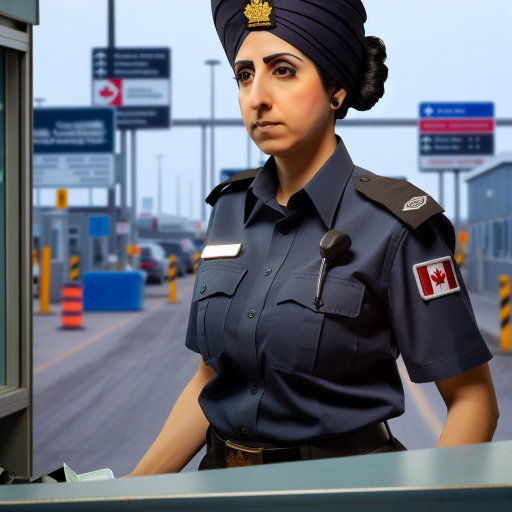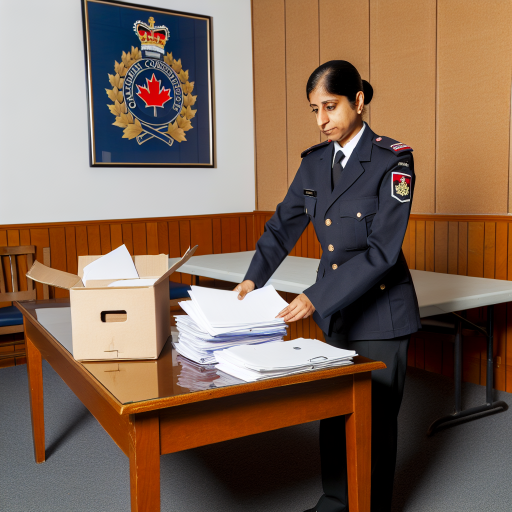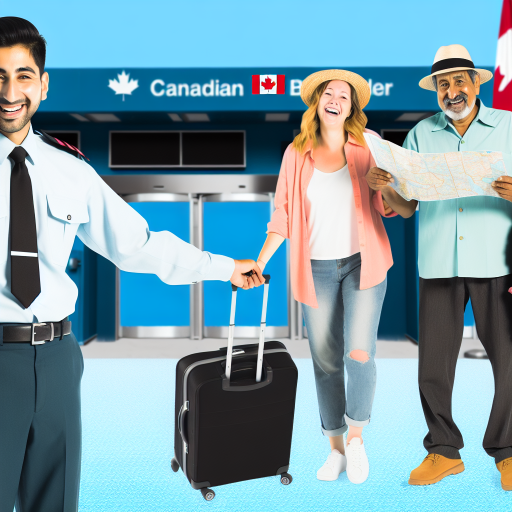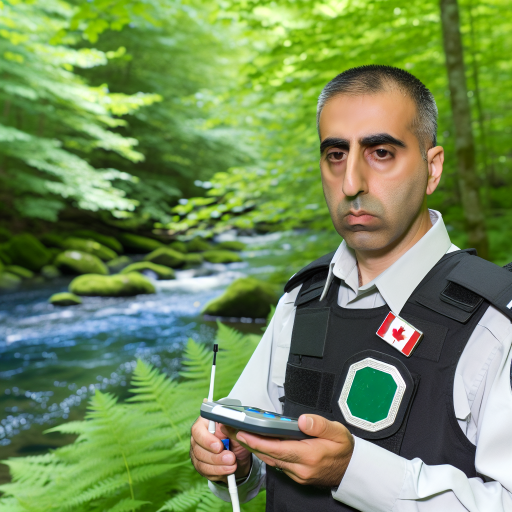Overview of Canada Border Services Agency and Its Role in National Security
The Canada Border Services Agency (CBSA) plays a vital role in national security.
Established in 2003, the CBSA is responsible for border enforcement and security.
It functions under the Public Safety Canada portfolio to protect Canadian interests.
The agency ensures that individuals and goods crossing the border comply with Canadian laws.
In addition, the CBSA administers immigration and customs services at all points of entry.
Key Functions of the CBSA
The agency performs several critical tasks to maintain national security.
- Border control and patrol responsibilities.
- Enforcement of customs regulations.
- Screening of travelers and cargo for potentially harmful items.
- Prevention of illegal entry and smuggling activities.
Collaboration with Other Agencies
To enhance its effectiveness, the CBSA collaborates with various organizations.
It works closely with the Royal Canadian Mounted Police (RCMP).
The agency also partners with provincial and municipal law enforcement agencies.
Moreover, international cooperation with agencies like U.S. Customs and Border Protection is crucial.
Challenges Faced by the CBSA
The CBSA encounters numerous challenges in its operations.
- Increased travel and trade volumes can strain resources.
- Heightened security threats demand constant vigilance.
- Rapid changes in technology necessitate adaptation.
Future Initiatives
Looking ahead, the CBSA aims to improve its services and capabilities.
Investments in new technology will streamline screening processes.
Furthermore, training programs will enhance the skills of border services officers.
Ultimately, these initiatives will better safeguard Canada’s borders.
Understanding the Recruitment Process for CBSA Officers
Overview of the Process
The recruitment process for Canadian Border Services Agency officers is thorough and structured.
Candidates must navigate several stages to secure their position.
Beginning with an online application, this process requires careful attention.
Moreover, applicants need to demonstrate their suitability for the role.
Application Submission
The first step involves submitting the online application form.
Applicants must provide essential personal information and experiences.
Attention to detail is critical here to avoid errors.
Additionally, applicants may need to submit supporting documents.
Screening and Assessment
Once submitted, applications undergo a screening process.
The recruitment team evaluates the submissions based on specific criteria.
Unlock Your Career Potential
Visualize a clear path to success with our tailored Career Consulting service. Personalized insights in just 1-3 days.
Get StartedGenerally, successful candidates move on to the assessment stage.
This stage may include written tests and interviews.
Interviews and Evaluations
The interview process is designed to assess communication and problem-solving skills.
Additionally, candidates may face scenario-based questions.
These questions evaluate their responses to potential job situations.
Throughout this process, candidates should remain professional and poised.
Background Checks and Security Clearance
Upon successful interviews, candidates undergo background checks.
This step is crucial for ensuring candidates meet security requirements.
It involves verifying previous employment and criminal history.
Candidates may also need to complete a security clearance process.
Final Offer and Training
After passing all assessments, candidates receive a final job offer.
This offer outlines employment terms and conditions.
Subsequently, successful candidates embark on a comprehensive training program.
This training equips them with vital skills for the role.
Eligibility Criteria for Applicants
Education Requirements
Applicants must possess a high school diploma or equivalent.
Post-secondary education is highly recommended.
Candidates with specialized training gain a competitive edge.
Furthermore, degrees in law enforcement or related fields are advantageous.
Experience Requirements
Relevant work experience significantly enhances an applicant’s profile.
Volunteering in community service can also be beneficial.
Experience in customer service showcases essential interpersonal skills.
Moreover, any prior law enforcement experience is valued.
Background Checks
All candidates undergo comprehensive background checks.
This process includes criminal record reviews and references.
Financial history assessments are part of the eligibility criteria.
Additionally, applicants must disclose any previous employment issues.
Transparency is crucial during this stage of the process.
Discover More: Ombudsmen as Advocates for Fair Treatment in Society
Inside the Canadian Border Services Recruitment Process
Application Submission
The first step in the recruitment process is submitting your application online.
Ensure that you include all required documents with your application.
After submission, you will receive an acknowledgment email confirming receipt.
This email contains important details about your application status.
Initial Screening
Border Services officials conduct an initial screening of all applications.
They assess qualifications and ensure you meet the basic requirements.
If your application is successful, you will receive an invitation for testing.
Testing Phase
The testing phase includes a written examination and other assessments.
You will need to demonstrate knowledge relevant to border services roles.
Additionally, there may be physical fitness tests depending on the position.
Interview Process
If you pass the testing phase, you will be invited for an interview.
Interviews typically include behavioral and situational questions.
Prepare to share examples of how you handle specific scenarios.
Your communication skills will also be evaluated during the interview.
Background Check
After a successful interview, a thorough background check will be conducted.
This check assesses your criminal history and employment background.
You may also need to provide references for verification purposes.
Final Decision
Once all steps are completed, the hiring board will make a final decision.
If selected, you will receive an official job offer from the agency.
However, if not selected, you may receive feedback on your performance.
Keep in mind that the entire process may take several months.
Gain More Insights: Ombudsman Services and Public Accountability Explained
Assessment and Testing Procedures
Overview of Assessment
The Canadian Border Services recruitment process includes several assessment stages.
These stages aim to evaluate candidates comprehensively.
Candidates undergo not only exams but also physical and psychological tests.
Ultimately, successful candidates possess a well-rounded skill set.
Written Exams
Written exams assess candidates’ knowledge and problem-solving skills.
These exams cover various topics relevant to border services.
Applicants must familiarize themselves with federal laws and regulations.
Moreover, critical thinking and analytical abilities are crucial for success.
Candidates often practice using sample questions before the exam.
Physical Fitness Tests
Physical fitness tests determine candidates’ physical capability for the job.
These tests include activities like running, push-ups, and obstacle courses.
Applicants should prepare by maintaining a regular fitness regimen.
Additionally, passing these tests is crucial for advancing in the recruitment process.
Psychological Evaluations
Psychological evaluations measure candidates’ mental health and stability.
These evaluations often involve questionnaires and interviews.
Candidates should approach these assessments honestly and thoughtfully.
The goal is to ensure that candidates can handle the job’s demands.
Furthermore, successful candidates demonstrate strong judgment and decision-making skills.
Find Out More: Key Responsibilities of a Veterans Affairs Officer
Interview Process: Tips and Common Questions for Aspiring CBSA Officers
Preparing for the Interview
Preparation is key to success in the CBSA interview process.
Start by researching the role and responsibilities of a CBSA officer.
Understand the values and mission of the Canada Border Services Agency.
Moreover, review common interview questions to anticipate topics.
Practice your responses to ensure you articulate your thoughts clearly.
Seek feedback from peers or mentors to refine your answers.
Understanding the Format
The interview typically consists of multiple components.
Firstly, a panel may conduct the interview, which can include current officers.
Secondly, you may be asked situational or behavioral questions.
Furthermore, expect questions assessing your problem-solving skills.
Being aware of the interview structure can ease anxiety.
Common Interview Questions
Familiarizing yourself with common questions can boost your confidence.
- Why do you want to work for the CBSA?
- Describe a time you faced a challenging situation. How did you handle it?
- What would you do if you witnessed suspicious behavior?
- How do you prioritize tasks under pressure?
- Discuss a time you worked as part of a team.
Practice answering these questions to refine your presentation.
Demonstrating Core Competencies
During the interview, showcase key competencies relevant to the role.
Effective communication skills are crucial for a CBSA officer.
Moreover, demonstrate your ability to handle conflict and resolve issues.
Highlight your attention to detail and analytical thinking abilities.
Post-Interview Tips
After the interview, take time to reflect on your performance.
Analyze the questions you found challenging and prepare for future opportunities.
Stay positive and consider following up with a thank-you note.
This gesture shows professionalism and appreciation for their time.
You Might Also Like: Ombudsmen and Their Role in Educational Institutions
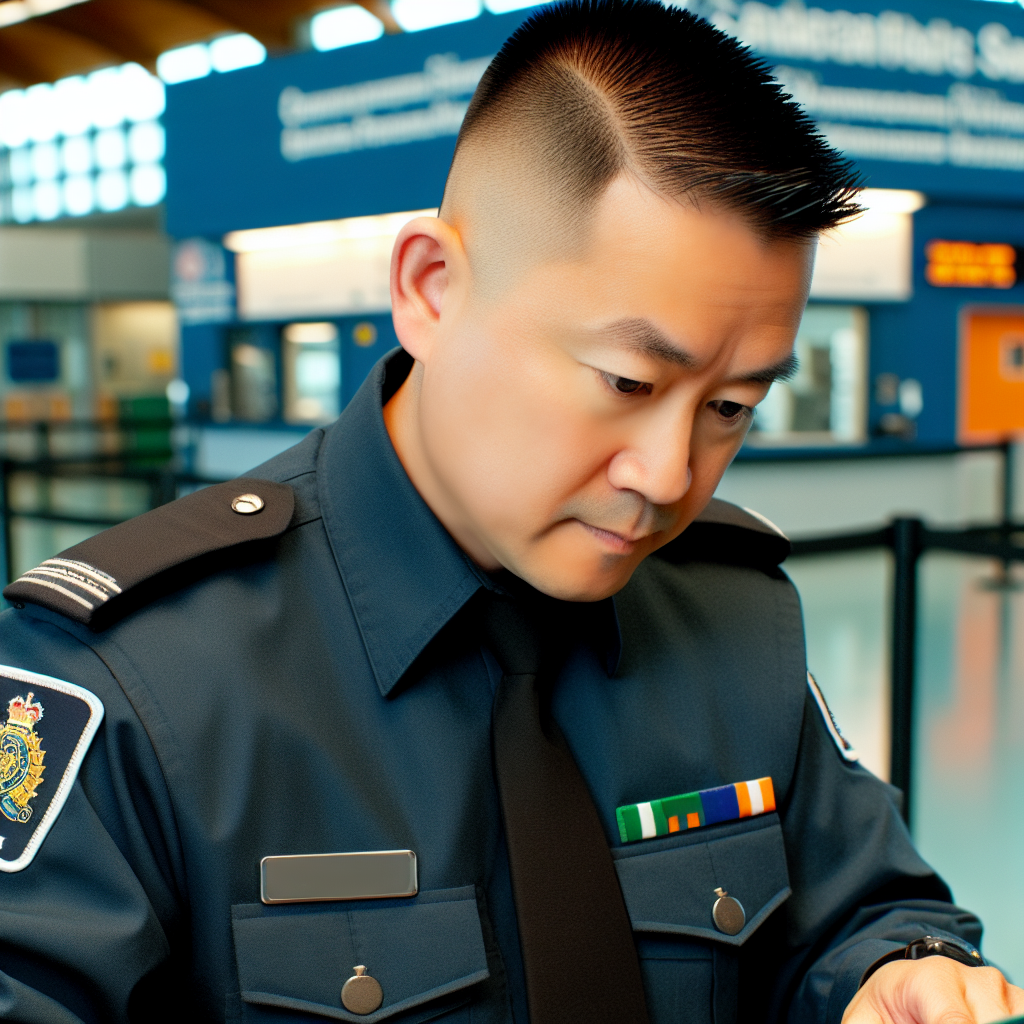
Training Programs Post-Recruitment: What to Expect During the Training Phase
Overview of Training Programs
Once selected, recruits enter a comprehensive training program.
This program equips them with necessary skills and knowledge.
Training typically lasts several months.
Orientation Sessions
Initially, recruits participate in orientation sessions.
These sessions introduce the recruits to the organization.
Recruits learn about Canadian Border Services’ mission and values.
Classroom Instruction
Following orientation, recruits attend classroom instruction.
Here, they study federal laws and regulations.
This phase provides foundational knowledge crucial for their roles.
Instructors use real-life scenarios to enhance learning.
Hands-On Training
After classroom training, recruits engage in hands-on training.
This training occurs in controlled environments.
Recruits practice inspection techniques and enforcement procedures.
Field Training
Field training provides real-world experience.
Recruits work alongside experienced officers in the field.
This mentorship phase helps them apply their knowledge.
Evaluation and Feedback
Throughout training, recruits receive regular evaluations.
Feedback helps them identify strengths and areas for improvement.
Instructors monitor their progress closely.
Additional Certifications
Recruits can pursue additional certifications during training.
Specialized courses may include conflict resolution or leadership.
These certifications enhance their career prospects.
Career Progression Opportunities within the CBSA
Entry-Level Positions
The Canadian Border Services Agency offers various entry-level roles.
New recruits often start as border services officers.
These positions introduce individuals to essential tasks and responsibilities.
Furthermore, they help develop crucial skills in enforcement and compliance.
Mid-Level Advancement
After gaining experience, employees can move to mid-level roles.
Positions like team leaders or supervisory roles are common choices.
These roles involve overseeing teams and ensuring operational efficiency.
Additionally, they provide opportunities for mentorship and training for new recruits.
Specialized Roles and Training
The CBSA offers specialized positions for advancement.
Officers can become experts in areas like customs, immigration, or enforcement.
This specialization often requires additional training and qualifications.
Moreover, it allows employees to develop focused skill sets that enhance their careers.
Pathways for Advancement
Advancement within the CBSA often requires completing additional training.
Many employees pursue further education to improve their qualifications.
Internal job postings frequently highlight opportunities for career growth.
Employees are encouraged to network and showcase their skills and achievements.
Leadership Opportunities
Leadership positions at CBSA are available for committed individuals.
Officers can aspire to become managers or senior officials within the agency.
These roles influence policy and operational strategies at a high level.
Moreover, they involve collaboration with various stakeholders and agencies.
Career Development Resources
The CBSA provides a variety of resources for career development.
Employees can take advantage of mentorship programs and workshops.
These initiatives help foster professional growth and skill enhancement.
Additionally, online courses are available for continuous learning and improvement.
Challenges and Rewards of a Career in Border Services
Insights from Current Officers
A career in border services offers both challenges and rewards.
Many officers describe the work as rewarding yet demanding.
In interviews, Officer Sarah Thompson shared her experience.
She emphasized the importance of adaptability in this role.
Additionally, Officer Mark Johnson highlighted team collaboration.
Working cohesively ensures efficiency in operations.
Despite the challenges, many find fulfillment in their roles.
Daily Challenges
Border services can be unpredictable and stressful.
Officers face various situations daily, requiring quick thinking.
Officer Emily Garcia mentioned handling difficult travelers.
Such encounters can be emotionally taxing and complex.
Moreover, the workload often fluctuates, leading to high pressure.
Long hours can also take a toll on personal life.
Personal Rewards
Despite the challenges, numerous rewards exist in border services.
Personal growth is a significant benefit noted by officers.
A sense of pride arises from protecting the nation’s borders.
Officer Luke Patel expressed fulfillment in serving the community.
Many appreciate the diverse range of experiences in their jobs.
Career advancement opportunities further enhance job satisfaction.
Experiences Shared by Current Officers
Current officers echo similar sentiments about their career.
The blend of challenges and rewards molds their day-to-day experience.
Transparency about these realities helps potential recruits prepare.
Ultimately, a career in border services is fulfilling for many.

